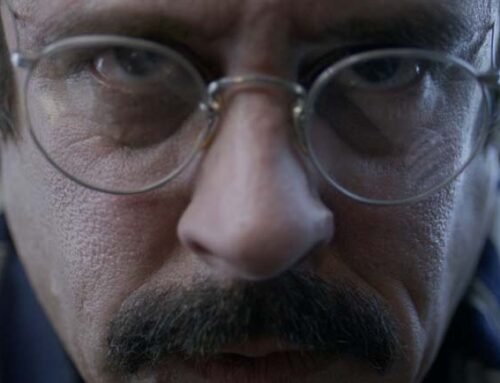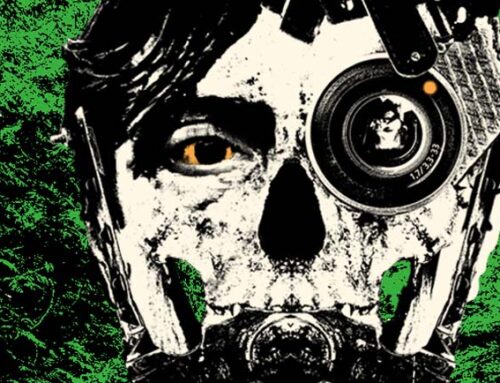Grief can make a person think and act in ways they normally wouldn’t. It is a feeling that is so all-consuming and overwhelming, it often leads us to irrational thoughts and actions. It can be safely said that there isn’t a person who has lost a loved one who hasn’t had at least a momentary thought of wishing they could somehow see that person one more time. For the bereaved Ally (Akasha Villalobos) , the potential for that opportunity proves all too tempting in Neil McCay’s Trip.
Ally discovers her teenage daughter, Samantha, dead with horrific injuries after an argument the two had earlier in the day. Though the nature of Samantha’s injuries are grisly and shocking, her death is ultimately ruled a suicide, something that doesn’t sit right with Ally and her mother’s intuition.
Consumed by grief, we see the unraveling of not only Ally’s mental health, but also the condition of her home, physical appearance, her career, and her relationship with husband Michael (Major Dodge). When Therapist Jan Rollins (Peggy Schott) reaches out to Ally and offers her an unconventional treatment in the form of a liquid laced with an herbal hallucinogenic, Ally is at first offended and dismissive. Jan continues to push, promising it will give Ally a chance to see her daughter again, which proves to be too tempting for her to pass up. When the lines begin to blur between Ally’s own reality and the effects of the drug, she unknowingly becomes entangled in the darkness that plagued Samantha before her death, which threatens to destroy what little she has left of her life to hold onto.
Taking place almost entirely in the home Ally and Michael shared with Samantha, Trip manages to pace itself evenly enough to never feel too claustrophobic or repetitive, allowing the story to unfold in a practical way. There’s enough mystery and intrigue into what’s really happening both to Ally herself and everything around her to hold the viewer’s attention without ever wandering into unfocused territory.
McCay, who wrote and directed the film, finds a way to truly tap into the psyche of a couple who are deep in the trenches of grief, and how they deal with it in their own individual ways. While Ally struggles, Michael tries desperately to hold it together for both of them, playing the role of supportive partner with painful vulnerability. It’s refreshing to see a marriage that feels authentic; there are real conversations between the two of them that tackle deep and meaningful quandaries regarding how, and if, they should remain together.
Though the dialogue at times feels stiff and forced, and certain scenes definitely feel every bit of the low budget the filmmakers had to contend with, the performances are genuine, and the characters are sympathetic. Villalobos in particular portrays Ally in a gritty, unapologetic way that showcases how well she taps into the psyche of someone going through intense trauma.
There are true moments of fright that help place Trip squarely in the supernatural horror genre, while also diving into very emotional elements to give it heart. This isn’t your typical ghost story, but the stakes remain high as we begin to discover what is plaguing Ally, and how it relates to what Samantha was going through up until her untimely death.
6 out of 10
| Trip | ||
| RATING: | NR |
|
| Runtime: | 1 Hr. 35 Mins. | |
| Directed By: | ||
| Written By: | ||







